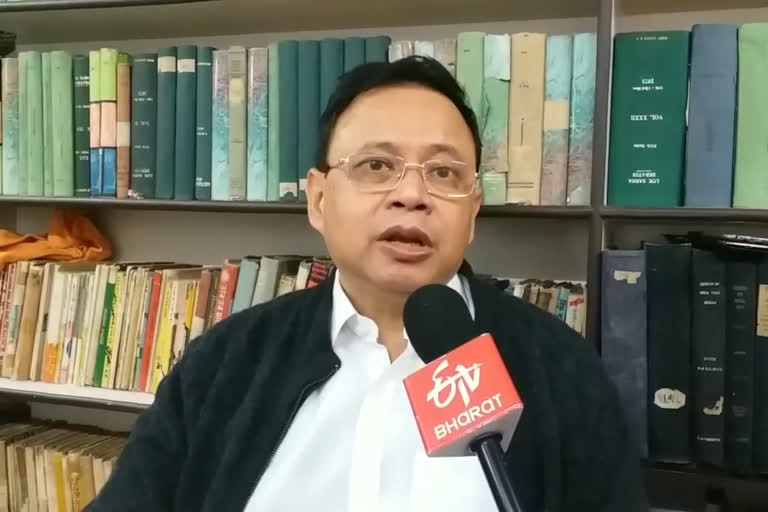New Delhi: Senior Supreme Court lawyer and social activist Upamanyu Hazarika on Saturday said that the Supreme Court's decision to club together the pleas on Citizenship Amendment Act (CAA) related to Assam and Tripura, and hear them separately, assumes much significance as the issues of the Northeast were different than that of the rest of India.
Speaking to ETV Bharat here, Hazarika said, "Citizenship Amendment Act has the maximum impact in Northeast. The region witnessed maximum influx from Bangladesh and erstwhile East Pakistan."
Several organisations, especially student bodies from the Northeast, have initiated movements against the "illegal influx" of migrants from Bangladesh post the Liberation War of 1971.
It was in 1985 that the historic Assam Accord was signed between the central government, state government and the influential All Assam Students Union (AASU) to bring an end to the years-old anti-foreigner movement in Assam.
"Out of the total 525 ethnic communities in India, 247 are in the Northeast with 115 in Assam alone," Hazarika said, adding that the population of such communities would not be more than 3.5 to 4 crore, which is 3 per cent of India's overall population.
"...And this 3 per cent of the Indian population and 50 per cent of the ethnic communities, have their own distinct culture and tradition. Thus, it is very much important to provide them protection and save them from extinction," Hazarika said.
Read: CAA fulfils wishes of Mahatma Gandhi: President
On the provision of Inner Line Permit (ILP) system in a few northeastern states, Hazarika said, "Any kind of influx should not put their identity into danger, and that is why ILP was introduced by the British. There are some local laws too which give exclusive rights on the resources of the region to the local people."
The concept of ILP dates back to the colonial era. Under the Bengal Eastern Frontier Regulation Act, 1873, the British framed regulations restricting the entry and the stay of outsiders. ILP is a document that allows citizens from the rest of India to visit or stay in states which are protected by ILP.
As of now, four northeastern states - Arunachal Pradesh, Manipur, Nagaland, and Mizoram are protected by ILP.
On the contentious Citizenship Amendment Act, which has sparked a nationwide stir, Hazarika said that for the rest of India, the Act carries a "symbolic value."
"In rest of India, CAA has a symbolic value because it is an issue where secular fabric of the country is in danger... There is no threat for the local population," he said.
Hazarika said that the relief which will be granted for the Northeast, should be of different scale.
"When you (Supreme Court) make a separate case, the order or the relief could also be separate," Hazarika said.
Interestingly, in its first hearing on several petitions over CAA, the Supreme Court decided to combine petitions from Assam and Tripura and hear them separately from other petitions coming from the rest of the country.
Pertinently, before joining the Indian Union in 1949, Tripura was a princely state ruled by a tribal king. However, following the large scale influx of people from East Pakistan, the tribals in Tripura have been fighting against the "illegal immigrants".



